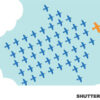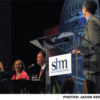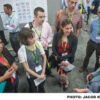Fewer Hospital-Acquired Conditions Saves Estimated 50,000 Lives
Estimated total number of saved lives from 2011 to 2013 as a result of reductions in the incidence of hospital-acquired conditions (HACs) in U.S. hospitals, compared with HAC rates in 2010, according to the U.S. Department of Health and Human Services (HHS). In 1999, the Institute of Medicine estimated that as many as 98,000 deaths per year resulted from avoidable hospital errors, such as central line-associated blood stream infections, adverse drug events, falls, and bedsores. Rates of avoidable medical errors fell by 17% between 2010 and 2013, (HHS) reports, which resulted in 1.3 million fewer HACs than expected and overall savings of $12 billion for the healthcare system.






